
Architecturally, the court fort is a home-like workspace for an urban farmer, continuing to strike the dialogue between the built form and its farm-like surroundings. It holds seasonal farming workshops, film screenings, lectures, and seminars for creating awareness related to the benefits of farming in urban spaces.
Located on the outskirts of the city of Ahmedabad, this space comprises four major zones. The first one, and the largest by size, is the farming space that occupies over sixty percent of the plot in the east. The second is a natural pond in the center, held together by wild greens, contrasted and complemented by the waterbody attached to the built form in the east. The third is a dense Miyawaki forest plantation in the southwest.
This story is from the LA 74 edition of Journal of Landscape Architecture.
Start your 7-day Magzter GOLD free trial to access thousands of curated premium stories, and 9,000+ magazines and newspapers.
Already a subscriber ? Sign In
This story is from the LA 74 edition of Journal of Landscape Architecture.
Start your 7-day Magzter GOLD free trial to access thousands of curated premium stories, and 9,000+ magazines and newspapers.
Already a subscriber? Sign In
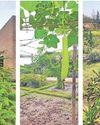
PLANTING IN URBAN AREAS NOTES
In urban landscapes, while balancing aesthetic design with their ecological functions, the understanding of plants in respect of their ecozones*, microhabitats, and species plays a crucial role. Native plants offer ecological benefits but face challenges in urban environments. There are some pragmatic considerations in this regard.

PLANTS IN ECOLOGY AND DESIGN
'100 Plants' offers insight into Delhi's ecology, guiding landscape architects and gardeners to cultivate sustainable, bio-diverse urban landscapes. It is an essential resource for all plant enthusiasts.
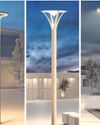
LANDSCAPE LUMINAIRES CAPTURING THE ESSENCE OF LANDSCAPES
Landscape luminaires blend with architecture, enhancing safety, security, accentuation, and aesthetics while minimizing light pollution and promoting sustainability for a captivating outdoor experience.
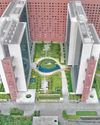
SURAT DIAMOND BOURSE
The landscape design of the corporate-commercial centre, inspired by the five elements of nature and Vastu principles, attempts to create a unique sense of place. It combines design with public art, encouraging a harmonious environment for business and leisure.
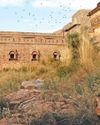
SIX SENSES FORT BARWARA RAJASTHAN
In the transformation of a historic 14th century fort-an erstwhile home of a Rajasthan royal family-into a luxury resort, native plants and indigenous materials play a pivotal role, redefining luxury with ecological sensitivity.
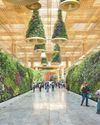
'A TERMINAL IN A GARDEN' PUTTING NATURE AND BIODIVERSITY AT THE HEART OF THE PASSENGER EXPERIENCE
The design of Terminal 2 (T2) at Kempegowda International Airport in Bengaluru is an attempt to provide a sensory and biophilic experience for passengers.
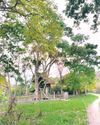
IDEAS OF 'SCENERY' AND 'LANDSCAPE' LINKING GEOGRAPHY WITH LANDSCAPE ARCHITECTURE
The term ‘landscape’ while encompassing natural and human elements, is understood differently among disciplines. Geographers, another set of experts working closely with nature, provide crucial ecological data, aiding landscape architects in creating sustainable designs.
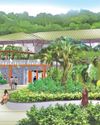
THRISSUR ZOOLOGICAL PARK KERALA
The relocated Zoo aims to showcase rich Western Ghats ecosystems, support nature conservation, and provide immersive visitor experience. The development integrates ecological restoration, architecture and landscape while improving livelihood opportunities of the local community.

ECOLOGY AND LOCAL CULTURE
With a working panel of scientists and experts from different fields of plant and animal ecology, the Nature Conservation Foundation is a Mysore-based NGO, engaged in exploring, understanding, and conserving the natural world through research and responsible engagement with society.
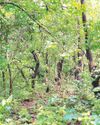
BEAUTY FOLLOWS COMPLEXITY
Designers must heed Sullivan's \"form follows function\" to avoid beauty over function. Following nature in landscape design enhances ecological productivity while promoting sustainability with principles of use of native species, biodiversity, and conservation of natural resources.